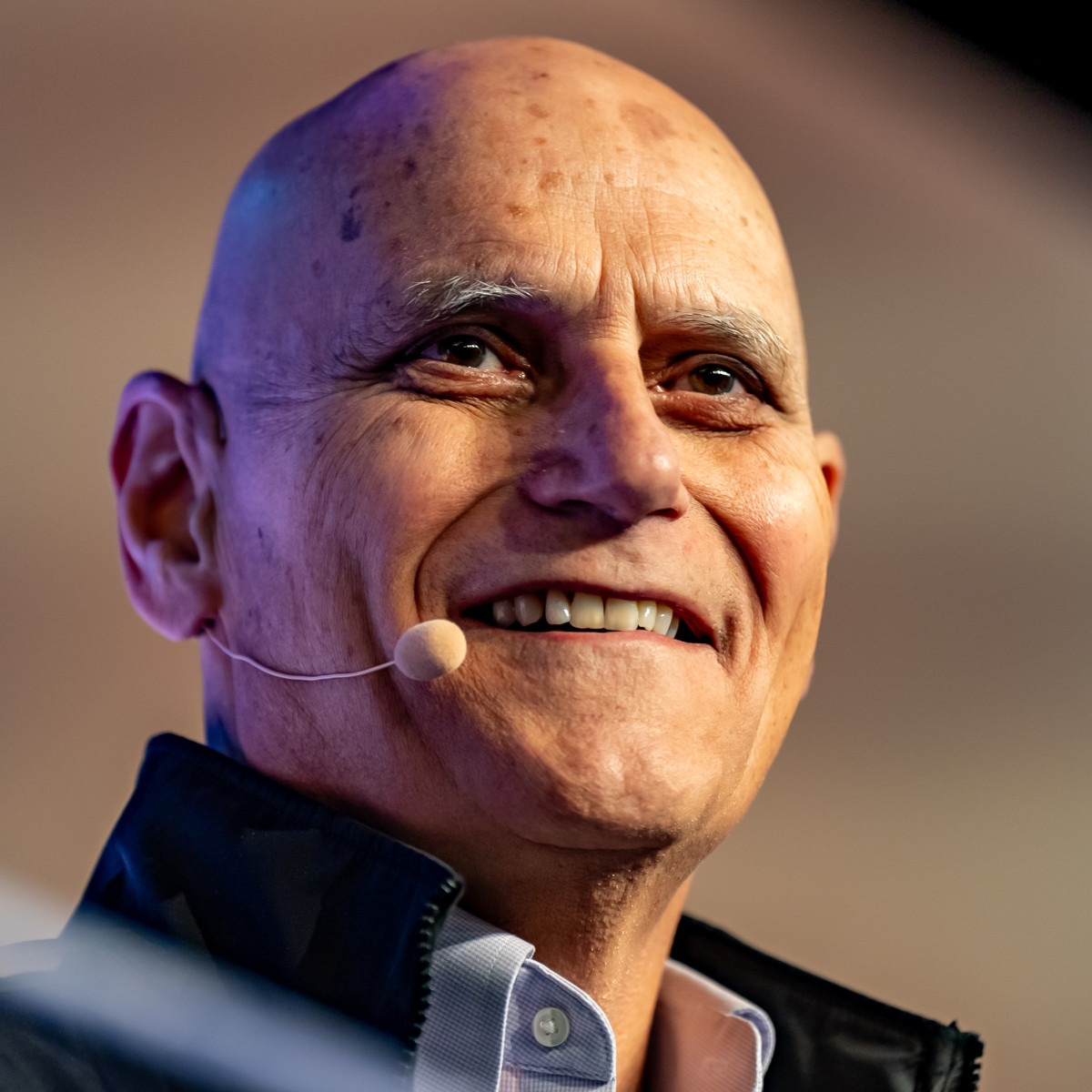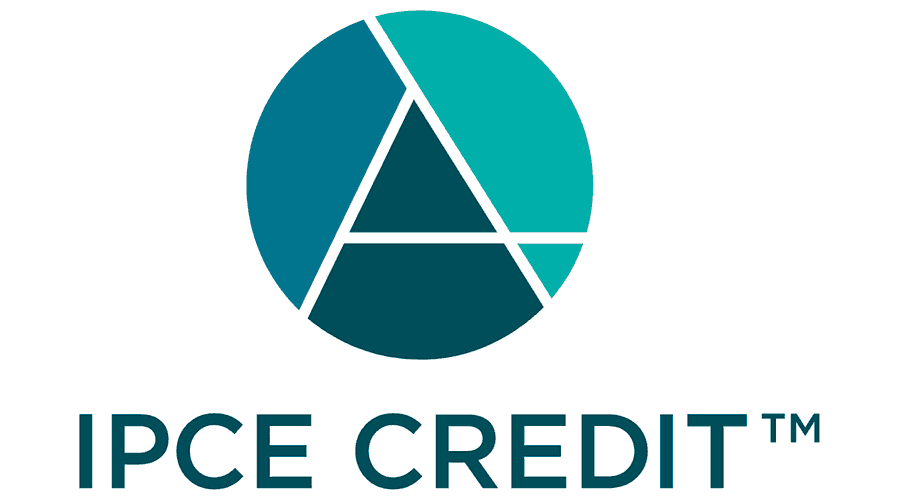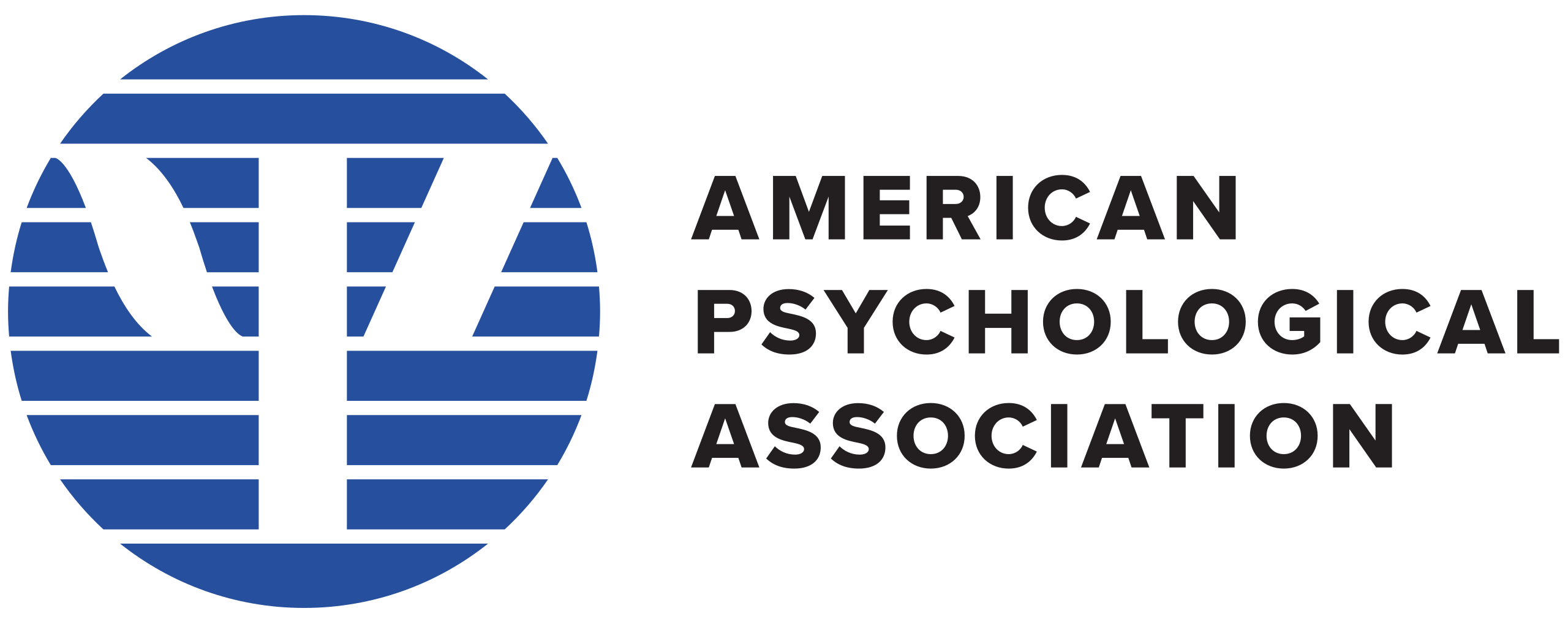Reimagining ACT in Philadelphia, October 2025
October 18 to October 19, 2025
14.5 CE hours
Join ACT originator, Steven C. Hayes in this new workshop where he explores the future of ACT and the evolution of the field.
*Early Bird Registration Expires August 31, 2025*
Take Your ACT Practice to the Next Level. Expand and Practice Your Skills in New Ways.
Acceptance and Commitment Therapy (ACT) has long been grounded in the psychological flexibility model, traditionally organized around the “hexaflex.” In this innovative two-day workshop, Dr. Hayes will invite you to reimagine ACT as a process-based therapy rooted in the Extended Evolutionary Meta-Model (EEMM).
This approach expands ACT’s core processes—emotional, cognitive, attentional, self-related, motivational, and behavioral flexibility—while extending them into sociocultural and biophysiological domains.
You’ll explore how psychological flexibility processes connect to core human yearnings, and how to apply these concepts in-session through experiential, technical, and idiographic strategies. With a focus on practical application, you’ll gain tools to enhance your clinical work, deepen your understanding of functional contextualism, and expand your therapeutic impact within your professional scope.
Location
Widener University, located just minutes from downtown Philadelphia, offers a beautiful and welcoming campus steeped in history and academic excellence. Nestled in the suburb of Chester, it provides convenient access to nearby hotels, including options in the bustling city center or quieter spots just outside of town. Attendees can enjoy Philadelphia’s renowned food scene—from iconic cheesesteaks to upscale dining—as well as historic attractions like Independence Hall and the Liberty Bell. With its picturesque grounds, tight-knit academic community, and close proximity to one of America’s most culturally rich cities, Widener is an ideal setting for this immersive two-day workshop
Trainers

Steven C. Hayes, PhD
Steven C. Hayes is Nevada Foundation Professor Emeritus in Psychology at the University of Nevada, Reno, and President of the Institute for Better Health, a nearly 50-year-old charity dedicated to enhancing mental health care quality. He has authored 48 books and over 700 scientific articles, focusing on human language and cognition to alleviate suffering.
Steven C. Hayes is Nevada Foundation Professor Emeritus in Psychology at the University of Nevada, Reno, and President of the Institute for Better Health, a nearly 50-year-old charity dedicated to enhancing mental health care quality. He has authored 48 books and over 700 scientific articles, focusing on human language and cognition to alleviate suffering.
Hayes earned his Ph.D. in Clinical Psychology from West Virginia University in 1977, followed by a clinical internship at Brown University under David H. Barlow. His academic journey led him from the University of North Carolina, Greensboro, to UNR in 1986, where he served as Director of Clinical Training and later Chair, retiring in 2023.
He has been a prominent figure in behavioral and cognitive behavioral therapy, leading several major psychological associations, including the Association for Behavioral and Cognitive Therapies (ABCT) and the Association for Contextual Behavioral Science (ACBS). Hayes has secured about $15M funding for research and served on the National Advisory Council for Drug Abuse in the NIH.
His contributions have earned him numerous awards, including the Lifetime Achievement Award from the Association for Behavioral and Cognitive Therapy and the James McKeen Cattell Fellow Award from the Association for Psychological Science. He is recognized globally as one of the most influential and highly cited psychologists, ranked by Research.com and AD Scientific Index as among the top 5 clinical psychologists and among the top 25-75 o.
Hayes’s personal battle with panic disorder and agoraphobia catalyzed his development of Acceptance and Commitment Therapy (ACT) in the early 1980s. His work on ACT and Relational Frame Theory (RFT) has since transformed clinical psychology, leading to bestsellers like “Get Out of Your Mind and Into Your Life” and “A Liberated Mind”. Over the last decade, he has pioneered process-based therapy, culminating in three influential books, yet to be encapsulated in a self-help format until now.
Program
This workshop redefines ACT by integrating the EEMM, which organizes psychological flexibility processes into several dimensions and domains. It also expands the psychological flexibility model by adding the sociocultural component and biopsychosocial elements. You will learn more about each of these areas and how they fit in with and expand the classical ACT model Each dimension and level is also tied to a core human yearning. These yearnings act as selection criteria for our evolution as complex beings.
Each of the processes will be linked to basic behavioral principles as extended by relational frame, underneath the overall umbrella of evolutionary science. Each will be linked to the analytical assumptions of functional contextualism, and the existing database drawn from more than 1400 randomized controlled trials, and several thousand additional studies on these principles and processes.
Participants will explore how these processes and yearnings manifest in their own lives and therapeutic relationships, using experiential exercises, small-group discussions, case demonstrations, and case examples. This workshop is ideal for practitioners seeking to deepen their ACT practice, embrace a process-based approach, and align therapy with clients’ unique needs and contexts.
October 18, 2025 | Day 1, Saturday
8:00 a.m.– 6:15 p.m.
6.5 CE Hours
Reimagining ACT as Process-Based Therapy: Exploring the EEMM and Human Yearnings
Day 1 will begin with an exploration of the Extended Evolutionary Meta-Model (EEMM) and its potential to reimagine ACT as a dynamic, process-based approach to human behavior and change. Dr. Hayes will guide participants through the core psychological flexibility processes—emotional, cognitive, attentional, self-related, motivational, and behavioral—and their connection to foundational human yearnings such as the desire to feel, understand, and belong. These yearnings serve as selection criteria in evolving systems and offer powerful leverage points for behavior change.
Morning sessions will focus on the openness and awareness processes and how they can be accessed through personal reflection and small-group work. Participants will deepen their understanding of emotional and cognitive flexibility, while learning how to recognize these dimensions in themselves and others. Afternoon sessions will explore active engagement and sociocultural/biophysiological processes, as well as the therapeutic alliance as a powerful context for change. Participants will begin to build foundational networking skills for modeling process interconnection—skills that will be expanded in Day 2.
Evening Session
4:45 p.m.–6:15 p.m.
1.5 CE Hours
Case Demonstration and Questions and Answers
This session offers a live demonstration with Dr. Hayes, followed by a Q&A period designed to help participants reflect on the practical integration of process-based analysis into real-world clinical work.
Schedule
- 7:00 a.m.–8:00 a.m.
Check-in* - 8:00 a.m.–9:45 a.m.
Reimagining ACT as Process-Based Therapy - 9:45 a.m.–10:00 a.m.
Morning Break* - 10:00 a.m.–12:00 p.m.
Exploring Openness and Awareness and their Link to Human Yearnings - 12:00 p.m.–1:30 p.m.
Lunch Break - 1:30 p.m.–2:45 p.m.
Exploring Active Engagement and Social / Physical Processes and their Link to Human Yearnings - 2:45 p.m.–3:00 p.m.
Afternoon Break* - 3:00 p.m.–4:30 p.m.
The Therapeutic Alliance, and Involving the Client in an Interest in Processes of Change - 4:30 p.m.–5:00 p.m.
Afternoon Break - 4:45 p.m.–6:15 p.m.
Evening Session: Case Demonstration and Questions and Answers
October 19, 2025 | Day 2, Sunday
8:00 a.m.– 4:30 p.m.
6.5 CE Hours
Technical Skills and Integration: Applying the EEMM in Clinical Practice
Day 2 shifts focus toward the technical skills needed to apply the EEMM model in session. The morning will cover how to read and respond to psychological flexibility processes using verbal and nonverbal cues, and how to use interventions that align with the client’s core yearnings. Participants will explore process targeting and learn how to foster change with both classic ACT strategies and techniques drawn from other models.
In the afternoon, sessions will explore the interconnection of processes for use in idiographic case analysis and how to integrate the EEMM into ongoing clinical models. Emphasis will be placed on using evolutionary and contextual science to support clients in building flexible, values-based lives that fit their personal and cultural contexts. This final day ensures participants leave with a practical, actionable framework for using process-based ACT in diverse settings.
Schedule
- 7:00 a.m.–8:00 a.m.
Check-in* - 8:00 a.m.–9:45 a.m.
Reading Psychological Flexibility Processes in Session: Techniques and Strategies - 9:45 a.m.–10:00 a.m.
Morning Break* - 10:00 a.m.–12:00 p.m.
Targeting Processes and Fostering Change - 12:00 p.m.–1:30 p.m.
Lunch Break - 1:30 p.m.–2:45 p.m.
Process Interconnections for Idiographic Analysis - 2:45 p.m.–3:00 p.m.
Afternoon Break* - 3:00 p.m.–4:30 p.m.
Integrating the EEMM into ACT Practice
Learning Objectives
DAY 1
Participants will:
-
Describe the Extended Evolutionary Meta-Model (EEMM) and its role in reimagining ACT as a process-based therapy.
-
Identify the eight core psychological flexibility processes and their corresponding human yearnings (e.g., the yearning to feel, understand, belong, and act with purpose).
-
Explain how yearnings can serve as selection criteria in evolving behavioral systems and support functional change.
-
Be able to apply experiential exercises to explore emotional and cognitive flexibility in personal and therapeutic contexts.
-
Be able to demonstrate techniques for linking attentional flexibility to the yearning for orientation and self-related flexibility to the yearning for belonging.
-
Analyze sociocultural and biophysiological flexibility processes in case examples.
-
Display skills for reading psychological flexibility processes in session, using verbal and nonverbal cues.
DAY 2
Participants will:
-
Utilize ACT techniques and other interventions to target and move psychological flexibility processes in therapy.
-
Demonstrate networking skills to model the interconnection of processes for idiographic analysis.
-
Explain how the therapeutic alliance is thought of in process-based ACT.
-
Explain the role of emotional flexibility in fostering non-attachment to both positive and negative emotions.
-
Demonstrate the ability to enhance cognitive flexibility and address the yearning to understand.
-
Assess the impact of sociocultural processes on interpersonal and community connection in therapy.
-
Design values-based interventions that align with clients’ yearnings for chosen meaning and competence.
Continuing Education
This professional continuing education activity was sponsored by Praxis Continuing Education and Training by New Harbinger and co-sponsored by the Institute for Better Health. Praxis Continuing Education and Training by New Harbinger, who has been approved as a provider of continuing education by the organizations listed below, maintains responsibility for the educational activity offered and for following the standards and regulations for the organizations. This live in-person activity is approved for 14.5 CE hours.
Joint Accreditation: In support of improving patient care, this activity has been planned and implemented by Praxis Continuing Education and Training by New Harbinger and the Institute for Better Health. Praxis Continuing Education and Training by New Harbinger is jointly accredited by the Accreditation Council for Continuing Medical Education (ACCME), the Accreditation Council for Pharmacy Education (ACPE), and the American Nurses Credentialing Center (ANCC), to provide continuing education for the healthcare team.

This activity was planned by and for the healthcare team, and learners will receive 1 Interprofessional Continuing Education (IPCE) credit for learning and change per hour attended.
Nursing: Praxis Continuing Education and Training by New Harbinger designates this activity for a maximum of 14.5 ANCC contact hours.
Physicians: Praxis Continuing Education and Training by New Harbinger designates this live activity for a maximum of 14.5 AMA PRA Category 1 Credits™. Physicians should claim only the credit commensurate with the extent of their participation in the activity.

Psychologists: Continuing Education (CE) credits for psychologists are provided through the co-sponsorship of the American Psychological Association (APA) Office of Continuing Education in Psychology (CEP). The APA CEP Office maintains responsibly for the content of the programs.
Social Workers: As a Jointly Accredited Organization, Praxis Continuing Education and Training by New Harbinger is approved to offer social work continuing education by the Association of Social Work Boards (ASWB) Approved Continuing Education (ACE) program. Organizations, not individual courses, are approved under this program. Regulatory boards are the final authority on courses accepted for continuing education credit. Social workers completing this course receive 14.5 clinical continuing education credits.
NY Social Workers: Praxis Continuing Education and Training by New Harbinger is recognized by the New York State Education Department's State Board for Social Work as an approved provider of continuing education for licensed social workers #SW-0467
NY Counselors: Praxis Continuing Education and Training by New Harbinger is recognized by the New York State Education Department's State Board for Mental Health Practitioners as an approved provider of continuing education for licensed mental health counselors. #MHC-0198.
NY Psychologists: Praxis Continuing Education and Training by New Harbinger is recognized by the New York State Education Department's State Board for Psychology as an approved provider of continuing education for licensed psychologists #PSY-0002.
NOTE: Many state boards accept offerings accredited by national or other state organizations. If your state is not listed, please check with your professional licensing board to determine whether the accreditations listed are accepted.
Disclosure Information:
There is no commercial support for this activity.
None of the planners or presenters for this educational activity have relevant financial relationship(s) to disclose with ineligible companies whose primary business is producing, marketing, selling, re-selling, or distributing healthcare products used by or on patients.
Requirements
Some experience with ACT is preferred. That means an introductory ACT workshop or some reading in ACT. All behavior change professionals– including therapists, psychologists, counselors, coaches, social workers, LMFTs, behavior analysts, trainers, and other change agents – will benefit from this workshop.
Recommended Reading
These texts are not prerequisites to attend the training. However, should you like to deepen your understanding of ACT, RFT, yearnings, the EEMM, and how they apply to your practice, the following are useful.
- Hayes, S. C. (2019). A Liberated Mind: How to Pivot Toward What Matters. Avery.
- Hofmann, S. G. & Hayes, S. C. (2020). Beyond the DSM: Toward a process-based alternative for diagnosis and mental health treatment. Oakland, CA: Context Press / New Harbinger Publications.
- Hayes, S. C., Strosahl, K. D., & Wilson, K. G. (2012). Acceptance and Commitment Therapy: The Process and Practice of Mindful Change (2nd ed.). Guilford Press.
- Hofmann, S. G., Hayes, S. C., & Lorscheid, D. (2021). Learning process-based therapy: A skills training manual for targeting the core processes of psychological change in clinical practice. Oakland, CA: Context Press / New Harbinger Publications.
References
- Hayes, S. C. & King, G. (2024). Acceptance and Commitment Therapy: What the history of ACT and the first 1,000 randomized controlled trials reveal. Journal of Contextual Behavioral Science, 33, 100809. Doi: 10.1016/j.jcbs.2024.100809
- Ciarrochi, J., Hernández, C., Hill, D., Ong, C., Gloster, A. T., Levin, M., Yap, K., Fraser, M. I., Sahdra, B. K., Hofmann, S. G., & Hayes, S. C. (2024). Process-based therapy: A common ground for understanding and utilizing therapeutic practices. Journal of Psychotherapy Integration, 34(3), 265-290. Doi: 10.1037/int0000348
- Sahdra, B. K., Ciarrochi, J., Klimczak, K., Krafft, J., Hayes, S. C., & Levin, M. (2024). Testing the applicability of idionomic statistics in longitudinal studies: The example of ‘doing what matters.’ Journal of Contextual Behavioral Science, 32, 100728. Doi: 10.1016/j.jcbs.2024.100728
- Ong, C. W., Ciarrochi, J., Hofmann, S. G., Karekla, M., & Hayes, S. C. (2024). Through the extended evolutionary meta-model, and what ACT found there: ACT as a process-based therapy. Journal of Contextual Behavioral Science, 32, 100734. Doi: 10.1016/j.jcbs.2024.100734
- Hayes, S. C., Hofmann, S. G., & Ciarrochi, J. (2023). The idionomic future of cognitive behavioral therapy: What stands out from criticisms of ACT development. Behavior Therapy, 54(6), 1036-1063. Doi: 10.1016/j.beth.2023.07.011
- Hayes, S. C., Ciarrochi, J., Hofmann, S. G., Chin, F., & Sahdra, B. (2022). Evolving an idionomic approach to processes of change: Towards a unified personalized science of human improvement. Behaviour Research and Therapy, 156, 104155. Doi: 10.1016/j.brat.2022.104155
- Hayes, S. C., Hofmann, S. G. & Wilson, D. S. (2020). Clinical psychology is an applied evolutionary science. Clinical Psychology Review, 81, 101892. doi: 10.1016/j.cpr.2020.101892
- Hofmann, S. G., & Hayes, S. C. (2019). The future of intervention science: Process-based therapy. Clinical Psychological Science, 7(1), 37-50.
- Li, W., Gleeson, J., Fraser, M. I., Ciarrochi, J., Hofmann, S. G., Hayes, S. C., & Sahdra, B. K. (2024). The efficacy of personalized psychological interventions in adolescents: A scoping review and meta-analysis. Frontiers in Psychology, 15, 1470817. Doi: 10.3389/fpsyg.2024.1470817
Something Came Up?
Don’t Worry!
You can get a full refund if you cancel your registration up to 14 days before the workshop starts, minus an administrative processing fee of $50. If you cancel within 14 days before the workshop, however, no refund will be issued. In this case, we are happy to offer you a credit for a future event. If you need to cancel your registration or if you have any other questions, please contact us at staff@ibh.com
